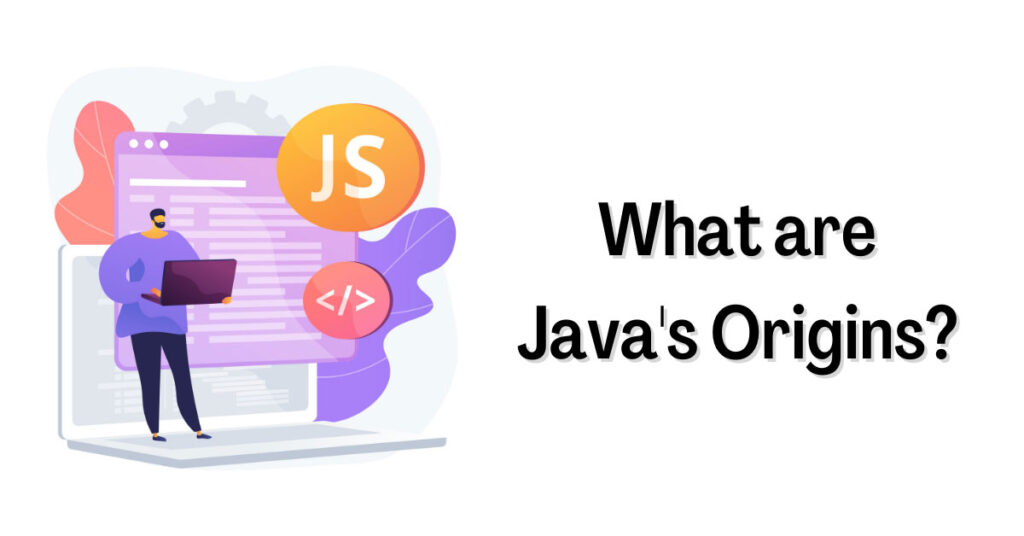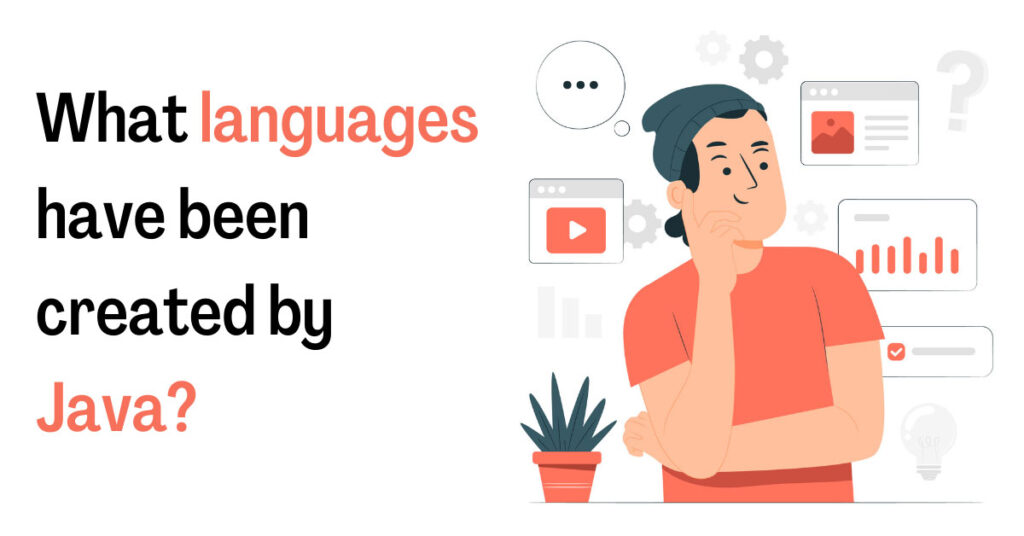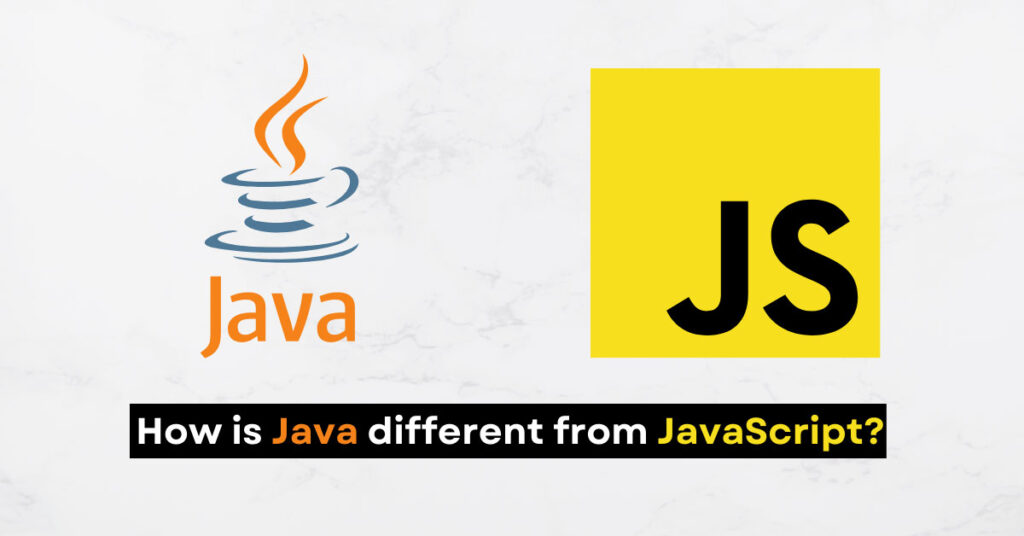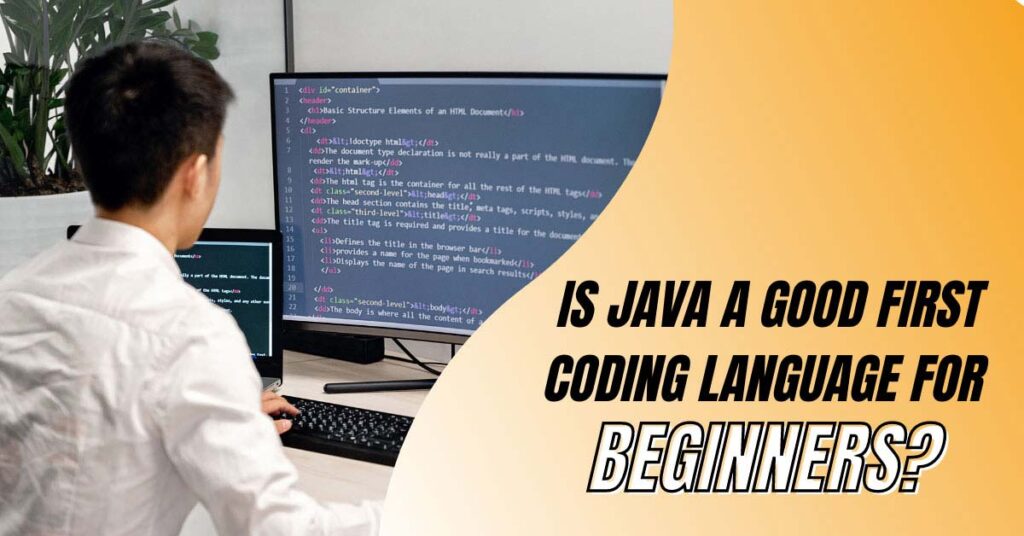
First off, what is Java?
- A general-purpose programming language, Java is similar to JavaScript or Python.
- The language is akin to C++ and C# as an object-oriented programming language.
- Java is also a platform. Thus any computer with a Java Virtual Machine (JVM) installed may run Java code. Initially, those two were equivalent, and Java was the only application that could run on the JVM. But since then, several languages—including Scala, Groovy, an implementation of Ruby called jRuby, and an equivalent of Python called Jython—have been created that can operate on the Java platform.
What are Java’s Origins?

Java was created by a Sun Micro systems team, launched in 1995, and later purchased by Oracle.
The designers of Java were already thinking about a world where your refrigerator or toaster would be running code—what we now refer to as the internet of things—because one of the main objectives of the Java inventors was to construct a language that could perform on consumer products. They were considerably ahead of their time in the mid-1990s, and we have only just begun to develop gadgets that profit from such a language. But Java’s architecture was heavily influenced by this objective. “Write once, run anywhere” was one of its key selling advantages; in other words, you could write one piece of code and have it compiled to work on any device.
Surprisingly, Java didn’t become popular for that reason; instead, its developers were able to benefit from another invention that appeared in the middle of the 1990s: the internet. Java had a capability that allowed you to create little programs known as applets that could run inside a web browser. As the web gained popularity, Java rode that wave and became incredibly successful and well-known. Therefore, even though it wasn’t what the language’s designers had in mind initially conceived of it, many web applications were created in Java.
Java’s designers were heavily influenced by already-existing programming languages like C and C++, with which Java has a lot in common syntactically. There were several features that the developers of Java specifically chose not to add since they had proven problematic for programmers using C and C++ because they were presented as examples of how not to do things.
Statistical vs Dynamic Testing

Ruby, Python, and JavaScript are dynamically typed languages, whereas Java is a statically typed language. The distinction between statically typed and dynamically typed languages may spark intense debate.
Dynamically typed: If you’ve ever performed any programming, you’re probably already familiar with the concept of a variable. You can declare a variable in a dynamically typed language, such as Ruby or JavaScript, without specifying the kind of data you intend to store in that variable. The variable is dynamic; anything may be used as a number, phrase, etc.
Statically typed: In statically typed languages like Java, we must declare the contents of each variable before working with data. Examples include this variable holding numbers, that one holding text, one holding dates, and so on. Accordingly, a statically typed language has a little bit more structure. The development tools we use with Java can catch some problems a programmer could make before the application is ever started. In contrast, while dealing with a dynamically typed language like Ruby or JavaScript, you are unaware of a problem until the code is executed and encounters an error.
What languages have been created by Java?

On the one hand, several JVM-built languages, such as Scala and Groovy, were developed to function in the Java environment. It might be argued that Java significantly impacted the creation of C#. Microsoft’s C# programming language was created after Java and undoubtedly drew heavily on Java. Java was also improved with the aid of C#; therefore, the two languages have continuously influenced one another.
What Is A Full Stack Java Developer?

Complete stack The entire application stack is developed by a Java developer, starting with the front end, backend module, and database.
The Front End
Speaking of developing the application’s front-end module. The developer should be familiar with HTML, JavaScript, and basic CSS. In addition to these essential technologies, businesses choose to create their front-end modules using frameworks like React, Angular, Vue, etc.
Engineering teams to choose front-end frameworks.
- Give their front-end module a structure
- Utilize the functions that these frameworks provide, such as the ability to divide a page into separate components, reuse those components, dynamic loading, and so on
- Avoiding the requirement for boilerplate code, hence accelerating the development process
- Effective code maintenance
- Providing UI with a uniform look and feel
Using frameworks expedites the development process by resolving frequent problems that developers would run into if and when they did not utilize a framework.
However, this does not imply that we must always utilize a framework while creating the front-end module of our application. When using a framework or library, trade-offs are involved, primarily relying on the use case.
There is no shortage of UI frameworks at our disposal. Several different JavaScript frameworks are available for every possible use case, in addition to the well-known UI frameworks React, Angular, and Vue discussed above. Additionally, we see a new wave of UI frameworks and libraries every year, increasing the amount of JavaScript frameworks and libraries we already have.
How is Java different from JavaScript?

There is absolutely no technological connection between Java and JavaScript. In the middle of the 1990s, Netscape created JavaScript, first known as LiveScript. Since no one was using it, Netscape decided to rename LiveScript as JavaScript to capitalize on the excitement around Java, which was receiving a lot of attention and buzz. And it was successful; JavaScript gained acceptance. Technically speaking, though, the two have no connection; they only share a name. Their sole technical commonality is that they both borrow syntax from the C computer language. Because of this, learning JavaScript is relatively simple if you are already familiar with Java and vice versa.
Which Java frameworks should I use?
The advantage of Java is that it is utilized in many different situations since it is designed to be a reasonably general-purpose language. It may be used on various operating systems, including Linux, Unix, Mac, Windows, and mobile devices. It may thus be used with just about everything, in my opinion.
Is Java a Good First Coding Language for Beginners?

Java is a suitable first programming language for a variety of reasons, including the following:
- Because Java has been around for a long time, it is widely known. Numerous excellent books and online resources are available.
- Since there are more Java programmers than any other kind of programmer, many individuals are already familiar with Java, making it simple to locate mentors and helpers.
- Since several languages, including Java, C#, and C++, draw their syntax from C, learning those languages is significantly more straightforward if you are already familiar with Java.
- Since Java is an object-oriented language, many of the fundamental ideas you learn there may be applied to other programming languages.
Working as a Java Developer.
How do Java Developers implement Java in their work?
Java is most frequently used to create complex enterprise-class applications. Java is excellent for constructing vast-scale systems or for use in corporate contexts. It’s less appropriate for minor activities, even though it may be utilized for them. Java can be too heavy for DevOps, where you need to write rapid scripts.
At this time, Java is relatively widely utilized; wherever you look, Java is being used for something:
- Java is frequently used by businesses like Google and Amazon to build extensive web systems
- Writing applications, particularly for your Android phone
- Programming for compact embedded devices
Can you become both an Android and Java Developer?
Yes, Emonics Academy’s Java students do land employment for Android development. The primary distinction is that Java does not use the JVM on Android phones; instead, Java compiles its source code, particularly for the Android runtime, which is invisible to programmers. Although you’re still writing Java from a programmer’s perspective, the code that finally executes on the phone looks very different from the code I might write for a web app. But the code you’re developing is identical in terms of its source.
What jobs can I apply for with Java?

We have had several students graduate from our Java curriculum and get employment performing C# development because we provide them with that solid basis. Students who completed our C# curriculum have gone on to work in the Ruby development industry. Additionally, we have seen graduates from both degrees land positions developing Python and JavaScript. Our theory makes learning the first programming language the most difficult. Still, if you do it well and concentrate on the principles and underlying knowledge, you’ll be well prepared to find work as a developer in another language.
Java’s drawbacks and alternatives
If there is a drawback, it may be a beginner’s somewhat steep learning curve. Because Java has existed for quite some time, there will likely be a library or framework for your need, and a solid supportive, open-source community surrounds Java.
That sounds great, but starting might be difficult since you don’t know where to begin. In comparison to some other languages, it is this vast ecosystem, and if you’re trying to learn on your own, it might be a little intimidating to join. One of the benefits of a coding Bootcamp like Emonics Academy is that we can assist you in focusing on the information you need to know.
A technical drawback may be that Java is not your go-to tool if you undertake lightweight, rapid work, build a quick script, or anything similar. It works better for more prominent, trickier applications.
Is Java a closed source? Do Java Implementations have open source options?
The Java programming language is open source, yes. All of the frameworks and libraries we use in our classes are open source since none of the technologies we employ are proprietary. Java development is entirely free. Because of its relationship with Oracle, some people mistakenly believe that Java is not open source. However, the Oracle implementation of the Java Development Kit (JDK) is not distributed under an open source license. However, OpenJDK is a JDK implementation that is entirely open source, and the two implementations are almost similar.
Java alternatives
The Microsoft C#/.NET stack is the most related language used for comparative purposes.
How can I begin learning Java?
Learn a new language for fun. Any language may be fun to program in if you like coding or programming. Going out and trying coding in any language if you’ve never done it before is my suggestion to those without any experience with it. To determine whether you enjoy programming, try using JavaScript. If you do, check the available jobs; this will direct you to Java or C#.
Why choose a Java Development Bootcamp?

Easily Learnable
- For many developers, this should seem unbelievable, yet it is a fact. Because Java helps to expand the bulk of developer activities with a constrained amount of attention, the requirement to learn and adapt is much more intense.
- It relies on fewer magic characters because of the standard English punctuation, which undoubtedly makes it easier to understand and master both. It gets easier to grasp if the developer removes the underlying challenges.
A Large Community
- Programming languages like Java encourage creative and analytical thinking among developers and designers of all stripes. It aids in the growth of a sizable engineering firm with the best networks for information. It is a pleasure to create, provide, and get guidance on Java application development from a professional, and everything is free.
- Various forums where you may submit questions and other user portals are often available for assistance and support with any topic. This demonstrates how far Java has come internationally.
Beginner-Friendly
- Java’s continued popularity in 2022 is due to its usability as a programming language. The execution of complex tasks, such as memory management, is simple. Programs may be easily written and executed by novice developers.
- Many engineers at Java development businesses are actively involved in creating apps. In any event, they also employ junior engineers who start creating apps right away. The justification is that building Java programs is genuinely user-friendly from the start.
Takeaway
The programming language Java has been used for a very long time and will continue to be valid indefinitely. It contains the necessary traits and components to build flexible apps for different businesses and startups.
Some of the biggest companies on earth utilize Java, which has typically received favourable evaluations. Its technologies and libraries give engineers easy access to development tools and increase business productivity. This puts Java developers in constant demand, which explains why they also earn well.

